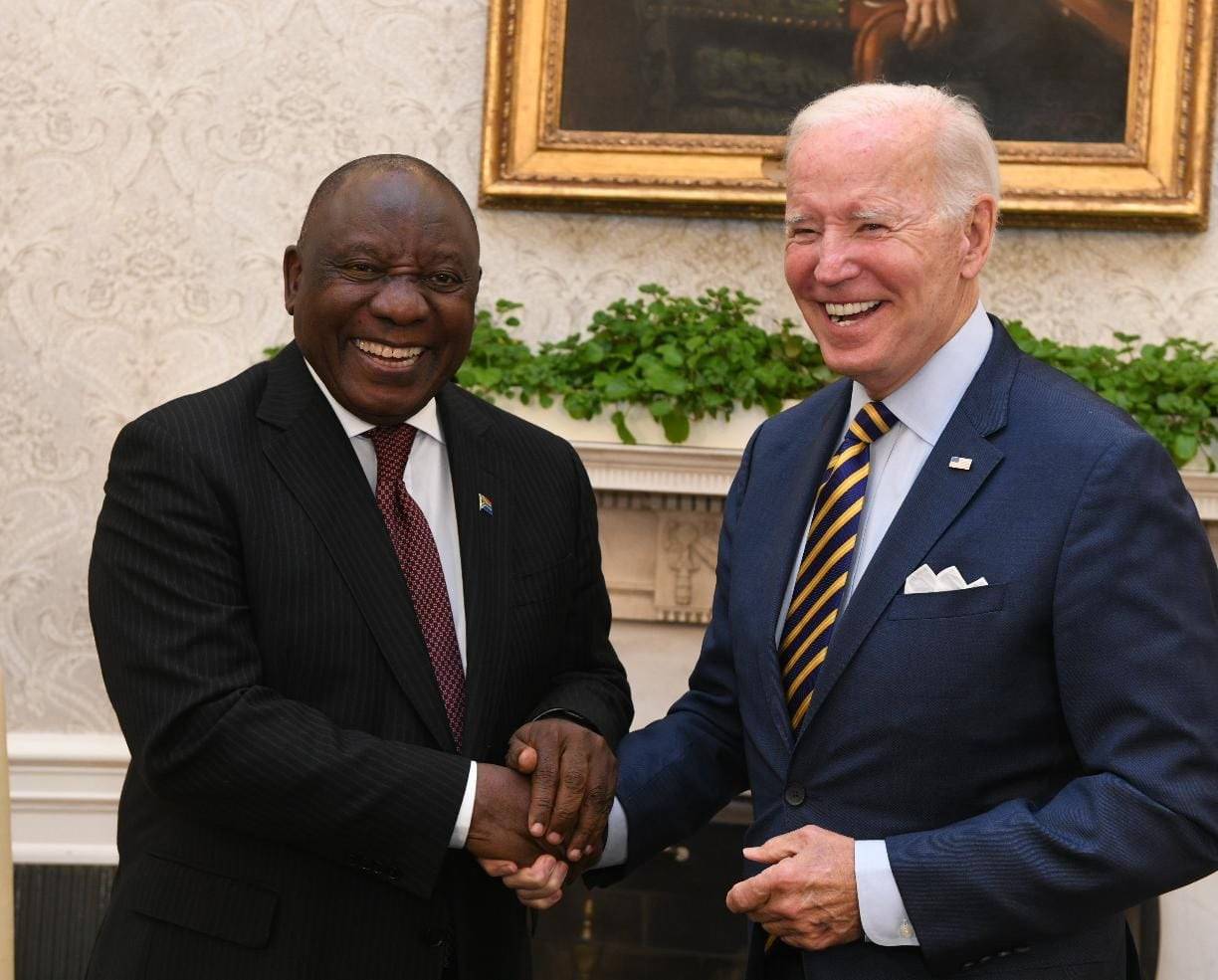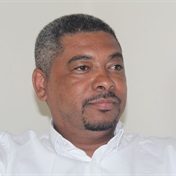
Oscar van Heerden asks if South Africa is ready for a battering policy from the US and the collective West, if we don't follow their expectations.
When looking at what diplomacy is in international relations, one must
consider traditional diplomacy is a give-and-take process.
You generally have a proposal and a counterproposal; you may pull back your ambassador to show your disapproval on a matter, you bluster, you bluff, you harangue or submit a different set of negotiation points.
You bring in more mediation; sometimes you reach for the sword but don't pull it from the scabbard.
You then come away with a solution which may leave both parties satisfied or not, but never to the point of war.
This was and is what traditional diplomacy is about. Always trying to stop conflicts, short of war.
Now, what can we say about US diplomacy over the years based on what the US has shown us in Vietnam, Iraq, Yugoslavia, and Libya?
It puts forward a set of demands to country X, and these are treated as non-negotiable - this is what you are going to have to do in effect.
The US says they are accords or agreements when, in fact, these are ultimatums. And when the other side resists or refuses or hesitates to adhere to them, then it is treated by the US as not negotiating in good faith.
It's said they are stalling, stonewalling and snubbing these offers the US is making. And so, US leaders have no other recourse, especially after being so generous and patient; they have no other option but to bomb this other country and start killing large numbers of men and women in these territories.
And finally, the leaders that resist are labelled war criminals. Muammar Gaddafi, Saddam Hussein, and Slobodan Milosevic, to mention a few. All, by the way, also likened to Hitler.
There's a disconnect, no?
An arrogance of power?
Furthermore, let's consider what is realism in international relations (IR) as opposed to other IR theories.
The first assumption of realism is that the nation-state (usually abbreviated to "state") is the principled actor in international relations. Other bodies exist, such as individuals and organisations, but their power is limited.
Second, the state is a unitary actor. National interests, especially in times of war, lead the state to speak and act with one voice.
Third, decision-makers are rational actors in the sense that rational decision-making leads to the pursuit of the national interest.
Here, taking actions that would make your state weak or vulnerable would not be rational. Realism suggests all leaders, no matter what their political persuasion, recognise this as they attempt to manage their state's affairs in order to survive in a competitive environment.
Finally, states live in a context of anarchy - that is, in the absence
of anyone being in charge internationally. The often-used analogy of there
being "no one to call" in an international emergency helps to
underline this point.
Within our own states, we typically have police forces, militaries, courts and so on. In an emergency, there is an expectation that these institutions will "do something" in response. Internationally, there is no clear expectation of anyone or anything "doing something" as there is no established hierarchy.
Therefore, states can ultimately only rely on themselves. In the case of the US, one must ask within this realm, are they acting out of hegemonic benevolence or is it simply the arrogance of power?
Let's look again at what the collective West has done with Russia - a case study for us all.
There are three types of sanctions:
- Political
- Economic
- Military sanctions
Political isolation is key. Russia must have no friends or allies. The ICC recently issued an arrest warrant against Russian President Vladimir Putin. He is labelled a war criminal; he is evil and likened to Hitler.
The US cajoles most smaller nation states to vote against Russia at the UN General Assembly and to revise their respective trade agreements with Russia, especially their oil and gas undertakings.
They allow their citizens to harass Russian embassies in their respective countries. The US and the collective West insist there can be no neutrality nor non-alignment; you are either with us or against us. To hell with your sovereignty.
Economically, they have frozen Russia's foreign reserves, an amount said to be in excess of US$300 billion and ensured that most western companies leave the Russian market.
Russia has been removed from the "Swift" international payment system. Russian oil and gas imports have been banned to the rest of the world. The private assets and finances of certain Russian citizens has been frozen, holding their respective monies in western banks, especially the so-called oligarchs, who are friendly towards Putin and the Russian government. In effect, weaponising the US dollar.
State sponsors
Militarily, the US and the West are state sponsors of Ukraine's war. Supplying it with weapons systems, artillery, tanks, jets, intelligence, and auxiliary services, all to aid and assist Ukraine to win this war.
In recent days, the UK has sent depleted uranium shells to Ukraine regardless of the devastation and deaths such weapons have caused in the recent past in Iraq and Syria.
It has also threatened China should it decide to send lethal weapons to help Russia in this war. Basically, saying to any lesser nation-state that if you dare side with Russia and China in this global conflict, be warned. We will do exactly what we have just done to Russia, to your government and your people.
The question we must ask is, are we ready for such punishment? Because it will come as sure as night follows day.
READ | ANALYSIS: Bob Wekesa - South Africa and the United States: An ambivalent relationship
Are the bulk of our foreign reserves, said to be between US$45 billion and US$55 billion, still held in US dollars? Best we rethink this immediately. Have we calculated what it would mean for our economy should a critical mass of US companies withdraw from our shores?
Have we entertained the various scenarios should our banking sector come under severe pressure from Swift and other payment systems such as Visa and Mastercard?
The US has already threatened to discontinue the Algoa trade agreement unless we acquiesce to various unfair dumping practices such as US chicken.
Have we taken stock of what precisely it would mean for our economy should all these come to pass, which I think might, given the desperate position the US and the collective West find themselves in. Desperate times call for desperate measures.
There will, one can say, without fear of contradiction, be little in the form of military sanctions except for the continuation of frustrating our local arms industry worldwide.
It seems every time South Africa concludes a deal to build and export one of our most sophisticated weapons systems, such as the Rooivalk attack helicopter, the US thwarts the deal regardless with who it is. They rather insist the very client must buy their attack helicopter, the Apache, and who wants to be on the wrong side of the mighty US?
Michael Parenti - a political scientist, academic, historian and author of many books - reminds us that in 1919 the conservative Austrian economist Joseph Schumpeter, who later became a professor at Harvard University, wrote the following about ancient Rome:
Does that sound familiar to you at all?
So, I ask again, are we ready for this sort of battering policy from the US and the collective West? The batterer is not irrational; it knows exactly what it is doing and why. So, against the lies and the homicidal violence this national security aberration called the US, the thin frail voice of reason and democracy can become a mighty chorus of strong resistance. Are you up for this, South Africa?
- Dr Oscar van Heerden is a scholar of international relations (IR), where he focuses on international political economy, with an emphasis on Africa, and SADC in particular.
*Want to respond to the columnist? Send your letter or article to opinions@news24.com with your name and town or province. You are welcome to also send a profile picture. We encourage a diversity of voices and views in our readers' submissions and reserve the right not to publish any and all submissions received.
Disclaimer: News24 encourages freedom of speech and the expression of diverse views. The views of columnists published on News24 are therefore their own and do not necessarily represent the views of News24.




 Publications
Publications
 Partners
Partners























